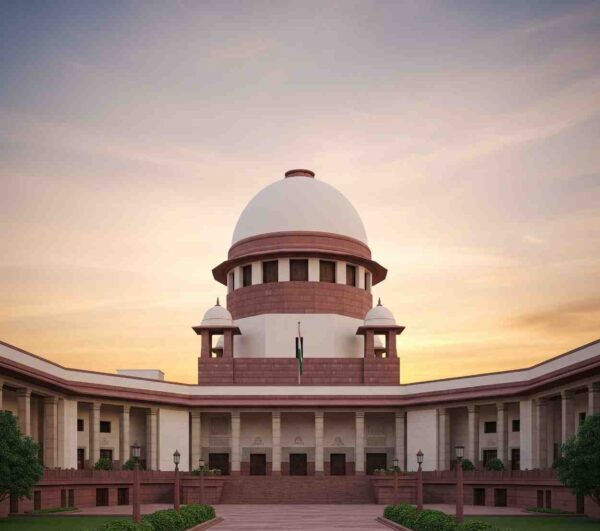Senior Advocate Shwetasree Majumdar withdraws consent for Delhi High Court judgeship after prolonged inaction on Collegium recommendation by the Centre.
Introduction
In a significant development highlighting the ongoing tensions between the judiciary and the executive in India, Senior Advocate Shwetasree Majumdar has formally withdrawn her consent to be appointed as a judge of the Delhi High Court, citing prolonged inaction by the Union Government on the Supreme Court Collegium’s recommendation. This incident underscores persistent concerns regarding judicial appointments and the balance of power in a constitutional democracy.
Background of the Recommendation
On July 25, 2023, the Supreme Court Collegium, headed by the then Chief Justice of India, recommended the elevation of Ms. Shwetasree Majumdar as a judge of the Delhi High Court. The recommendation was made following the established consultative process under the Memorandum of Procedure (MoP), which includes detailed scrutiny of professional competence, integrity, and antecedents.
Ms. Majumdar, a reputed intellectual property law expert and senior advocate, was considered a strong candidate. Her appointment was expected to enhance subject-matter expertise on the bench and promote gender diversity in the higher judiciary.
The Delay by the Union Government
Despite the clear recommendation from the Collegium, the Union Ministry of Law and Justice did not act upon the proposal for nearly a year. The lack of response or formal rejection from the government has been a matter of concern within legal circles. As per convention, the executive is expected to process such recommendations within a reasonable time frame unless it has concrete objections that it must formally communicate to the Collegium.
In Ms. Majumdar’s case, no such formal objection or adverse material has been placed in the public domain, which raises serious questions regarding transparency and the constitutional obligation of the executive to act in accordance with Article 217 of the Constitution of India.
Withdrawal of Consent
On July 5, 2025, Ms. Majumdar informed the Chief Justice of India and the Collegium of her decision to withdraw consent for her proposed elevation to the bench. In her communication, she reportedly expressed disappointment over the delay and cited the prolonged uncertainty as untenable, both personally and professionally.
The decision was not taken without due consideration. Sources suggest that the withdrawal comes after considerable introspection and frustration with the lack of clarity or progress from the government’s side.
Legal and Constitutional Implications
The Constitution of India, through Articles 124 and 217, lays down the framework for appointing judges to the Supreme Court and High Courts, respectively, wherein the President makes the appointments in consultation with the judiciary. The Collegium system, developed through Supreme Court judgments in the Three Judges Cases, ensures that the judiciary has primacy in such appointments to preserve judicial independence.
However, the executive delay in acting upon Collegium recommendations — without returning the file or citing reasons — has often been criticized as an indirect means of stalling appointments. This undermines not just the autonomy of the judiciary but also affects the timely administration of justice, especially in high courts burdened with heavy caseloads.
Wider Context: A Pattern of Delays
Ms. Majumdar’s case is not an isolated incident. Several recommendations made by the Collegium in recent years have faced similar fates. In 2022, there were notable delays in appointments to the Bombay, Gujarat, and Rajasthan High Courts. Despite repeated observations by the Supreme Court on the matter, including contempt warnings, the executive has continued to exercise discretion over the timing and fate of judicial appointments.
The issue draws attention to deeper systemic problems related to how effectively the doctrine of separation of powers and checks and balances are upheld within the judicial appointment process.
Reactions from the Legal Fraternity
Legal commentators and senior members of the Bar have expressed regret and concern over Ms. Majumdar’s withdrawal. Many believe that her expertise, especially in the field of intellectual property and commercial law, would have significantly enriched the Delhi High Court’s bench.
Some observers have even argued that such prolonged delays may discourage highly qualified professionals—especially those from the private Bar—from considering judicial appointments in the future, potentially diminishing the overall calibre of the bench and disrupting the development of future judicial leadership.
Conclusion
The withdrawal of Ms. Shwetasree Majumdar from consideration for judicial appointment is not merely a personal decision — it is a symptom of a larger institutional malaise. As the Indian judiciary grapples with pendency and questions of credibility, ensuring timely, transparent, and accountable appointment processes is more critical than ever. If unresolved, the executive inertia in judicial appointments could prove damaging to the very fabric of constitutional democracy.

























